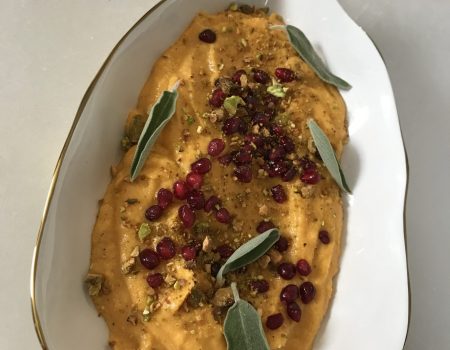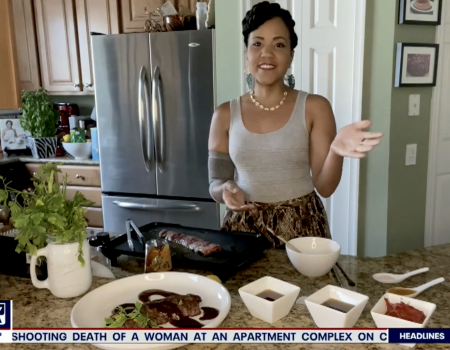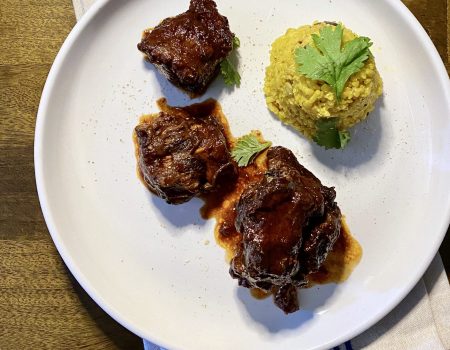
(a mock page from my now 3.5 year old book waiting to be published)
In response to the New York Times article about the lack of Latino authors and books for children, a select and passionate group of Latina bloggers have launched the “Latinas for Latino Literature” campaign which works to identify the problems in today’s publishing world that contribute to this lack of diversity so that we can provide ideas and executable solutions. As aspiring authors, many of us have experienced first-hand being shut out by the mainstream publishing industry, not being given the time of day by the powerful editors of publishing houses. Some editors can’t figure out our “niche”; some can’t find Hispanic authors; some believe Latinos”don’t read.” Our goal is to present viable solutions to fill a deficit that can benefit Latino readers and writers, but also the industry and general market at large. Look out for forthcoming public conversations and actions, followed up with provocative posts as this coordinated effort grows. We want to see quality and relevant books for an emerging group of readers.
@@@@@@
I love reading the New York Times’ book section. It’s a good resource for book history, top lists and new authors. They normally get it right. But oh boy did they cough up some hiccups when trying to explain why there aren’t more Latino books in classrooms in the article For Young Latino Readers, an Image Is Missing. I have some thoughts.
I’m a chef AND writer. I’d say the latter consumes most of time these days, and that’s okay. Truthfully, I was writing professionally before I was cooking full-time. I love to write. I’m a storyteller. Peruse this blog, read any given post written over the last 4 (close to 5 years), and you’ll quickly realize I like to paint a Picasso-esque picture of my colorful life, which includes a typical Latino family, though equally acculturated, living the “American Dream”.
And so naturally, I’ve sought and worked really hard to write a book. A cookbook to start. After months of research, conversations with chefs, writers, my first print magazine editor and other published authors, I finally sat down and penned a well-thought out, strategic proposal for ‘Cooking Under Pressure,’– Cuisine and Tales From a Cuban American Gal— or something like that. It’s been so long, I can’t even remember.
I pitched my 12-page proposal — which was supplemented with a colorful, 30-page, hard cover mockup, replete with professionally taken pictures, fully developed recipes and a very personal story accompanying each receta — not to mention a confirmed Foreword written by 12-time Grammy winner and Latino, Paquito D’Rivera (a close family friend) — and signed a contract with a NY literary agency. An agency having been extremely successful in selling cookbooks, particularly by minority authors.
The pitching process began and it all seemed to be heading in the right direction. A sale was imminent. Until that day when the agent dropped the ball, mispresented my product and failed to rectify it at my immediate request.
Relentless in all my efforts, I reached out directly to the editor at Running Press who was intrigued and just about to sign the dotted line before the agent referred to me as Cabaña.
You mean “Cubana,” maybe? Right. Our friendly yet brief conversations ended in the single most deterring statement causing a halt in my pursuit of publishing: “Bren, we love your concept. You’re young, talented and have great recipes. But truthfully, our last Latin cookbook didn’t do well and we’re just skeptical.”
¿Que, qué? So, I presented this beautiful mockup with the aforementioned detail, with the ultimate goal of exposing Cuban, non-Cuban, other Latinos and the general non-Latino reading market, to some knowledge on a rich culture and cuisine which is known and loved internationally, to be told “skeptical?” Somehow it wasn’t marketable then, and clearly not still.
I’m confused. And still frustrated.
I speak fluent English and Spanish. I read and write in both languages. Both are native to my tongue. My peers, colleagues, both Latin and non are interested in the existing diversity outside of their own realms. Yet editors and publishers seemingly don’t know how to place me. Or better yet, market me?? Why is that? I speak the same language the general market they focus and spend money on does.
I started digging into the number of cookbooks and general theme books in the mainstream market place that are readily available and have come up with less than twenty, authored by Hispanics, that speak to the Latino; that engage Latinos as the hero or heroine; or most common case scenario, a similar story to that of the tale of 3 generations of women involved with Fidel Castro as recounted in ‘Havana Dreams‘ by Wendy Gimbel (KnopfDoubleday, 1998), one of the dictator’s many mistresses (and coincidentally reviewed by the New York Times at time of publishing).
A fantastic read I enjoyed at the time.
Yes, I acknowledge successful authors like Junot Diaz (whom I’ve featured during Hispanic Heritage Month) while considering the many possibilities for the deficit in finding books bearing the name of Latinos on the covers that bookstore visitors would come across and maybe, just maybe, pick up and buy.
I have no recollection of English, Spanish or bilingual books (written by Hispanics) in my credenza as a bilingual kid. Mami proudly pulls one sole book from her memory bank which she and Papi used to read to us: ‘La Edad de Oro‘ by José Martí.
But that was it.
And not much has changed, actually. I’m not a mother but don’t see these kinds of books in my bilingual nephew and niece’s bookshelves, either.
But, perhaps the absent interest in publishing my book (I actually have a jaw-dropping, poignant manuscript telling the story of 50 Cuban-Americans swimming the straights between Havana and Miami and defining freedom; one went blind fighting a shark) has nothing to do with my “lack” of attractive penmanship and “lackluster” storytelling. Or the fact that I’m Latina and my particular niche is still a puzzle for publishers.
I see this side, too: Publishing is business. Period. I get it. But the the lack of Hispanic writers (who can write in English) in the publishing marketplace is a fact. And a problem.
Us Hispanic writers, bloggers, journalists may choose to look at it from at least two real perspectives: racial and business. As a business owner myself, though small, I understand publishers are business people, and their main motivation is not exactly the lofty goal of enlightening the masses; it is simpler than that: pure bottom line, that is, profits. However, the idea that publishers are engaged in a concerted effort to block us writers until we can appeal and sell to a public in a profitable way, is disturbing and polarizing.
While the market is rough and competition cut throat (RIP U.S. News & World Report), Hispanics who speak English do not constitute a particular niche unless made so, I, we, as Latina writers don’t see the publishers making the required effort/investment to make that happen. Is it then incumbent upon us and those who need it (our children, general market readers, our peers) and are slated to gain the most, namely the Hispanic writers, to come up with strategies to 1) create or further develop that niche and 2) convince publishers that there are profits to be made?
But wait, we’re not just talking. We have created the niche. And we have solutions. As my colleague Viviana Hurtado pointed out in her response, the 2010 US Census shows an undeniable and real growth in the Hispanic population. You know, we buy and read, too! Consider that perhaps our children need books to read; WANT books to read. Books that illustrate characters they can relate to. Not just physically, but culturally and linguistically.
Food does that; it transcends race and ethnicity. It knows no such thing at the core. It’s food. Everyone eats.
I know 20 food bloggers, non-writers, having started blogging at the same time if not later, all of whom have published cookbooks by the big players.
Only one is a Latina.
So, I do ask, why is my niche, my story and my voice not worthy of a serious conversation with an editor? And a published {cook}book?
Here are some books of interest, all written by Latinos; and a list of links to responses by my comadres in this effort.
La Edad de Oro by José Martí
The Mambo Kings Play Songs of Love by Oscar Hijuelos
Havana Dreams by Wendy Gimbel
Muy Bueno Cookbook by Yvette Marquez
Bilingual is Better by Ana Flores and Roxana Soto
Love Trips: A Collection of Relationship Stumbles by Sujeiry Gonzalez
Modern Pressure Cooking by Bren Herrera

Eat well, love unapologetically, pray with true intention, and take care of yourself.



















67 thoughts on “OPINION: The New York Times Misses the Point And Still, A Lack of Latino Authors”
Yes!! This is so well written. And that is the point, isn’t it? It’s not that Latino authors can’t write or that Latinos don’t read, but that publishers don’t know how to market our books to us. They need help thinking outside the box to tap our market. And that’s what we’re here to do: help them reach us. Thank you, Bren, for this great article.
I for one would immediately buy your cookbook!!
Hi Bren,
Your book is coming along nicely. I love it! Publishers and agents said the same things – and continue to do so in some respects – about African American authors. If they do the research, they would know how to market your book as well as others. I guess you will have to prove them wrong. I cannot wait to purchase your cookbook and share it with the world. I wish you continued success. Thanks for sharing this post.
I loved reading this Bren, and fully agree that this niche needs attention. I’m not sure I myself am considered a “Latina” blogger (heck, some people don’t even know I speak Spanish until they meet me!) but Latina I am. Born and raised in the DR, I’m full blown Dominican (which quickly brings me to a huge rant of “Dominicans” wanting to call themselves Dominicans without as much as having stepped on the island, lived a year or 20 here…etc. Let me just stop now.) We NEED your cookbook. We NEED more books about Latin food in English. There’s a million and one latin cookbooks en espanol. And I think 2013 will be your year, tu veras 😉
Considering the influence of many Hispanic poets (Lorca, Paz, Neruda) and authors (Márquez, Fuentes, Borges) in the 20th century, anyone thinking Latinos don’t read is a moron. Really, that applies to *every* culture, I can’t think of any without significant, influential works. Those don’t occur if people don’t read. Thankfully many of the major poetic works are available in dual Spanish/English editions. My Spanish understanding is too poor to grasp the poetry on its own, but I at least can hear the sounds to go with the translation. Not sure about the fiction; doubling the size of those is a tad more difficult.
Perhaps a publisher in California? I’d expect a slightly different view. Some quality self-publishing is taking off for “niches,” but that is a pain.
Oddly enough, the only Cuban cookbook I have is by a non-Hispanic author. I’m from Tampa, which likely tells you exactly which cookbook it is… A bilingual cookbook would rock, imho.
Will respond to all shortly. I have very specific answers to each of you. Thanks for stopping by and sharing your thoughts!
I adore all of this information. I love the idea for your book and this was so informative about the cookbook industry and Latin authors.
I would rather concentrate on your wonderfully written cookbook mock up page – whatever you heritage is, it’s great……..but, I’m stuck on the comment about “….the last Latino/a cookbook had not done well so they were hesitant to print yours….” was that incredibly racist comment supposed to be negated by them saying they loved your concept? Seriously, that’s like saying the last Latino who worked for them was lazy so you probably are too. Of course, you have to just move on but that is truly apalling. I have had rejection at every turn while trying to publish, but at least I haven’t had THAT. You are a bright woman, can’t you start your own company? 🙂
Hmmm…I got my degree in business administration. I get these publishers have shareholders to please and can’t see past next quarter’s earnings but I also don’t see why the investment in Latinos can’t be made now because it’s a growing market.
A very interesting post. I am not a Latina, but have a great interest in the world cuisine and would buy your book if it were available.
As for the lack of interest in the Latin American literature, I don’t believe it is true. Andrés Neuman’s Traveller of the Century was a bestseller in 2012. And there are so many great authors who sell millions of books, I think your publishers need to get some basic education.
Of course, I could speak to this from the corner of African-American writers as well as there is open a lack of visibility in that arena as well. You and the other writers responding to this article have done the right thing–put well-written, informative, personal and adamant rebuttals out there to make people understand where the problem lies.
Hi Bren,
I can’t tell you how fantastic this post is. You’ve stated the facts perfectly and I can’t add anything else to it. I am Mexican,mostly raced in the US, also bilingual, read and write in both too. It is such a disappointment that publishers see Latino writers in that light and only think about profits. The boom of food bloggers and world cuisine we all write about is proof that people see past profit and are genuinely interested in other cultures. You are so talented and deserve to be published.
742722 250260Thank you for the auspicious writeup. It in fact was a amusement account it. Look advanced to far more added agreeable from you! However, how could we communicate? 971444
order tadalafil: http://tadalafilonline20.com/ tadalafil daily use
generic tadalafil united states tadalafil 40 mg daily
tadalafil dosage
medications without a doctor’s prescription: https://genericwdp.com/ generic pills without a doctor prescription
india pharmacy best online international pharmacies india
india pharmacy: https://genericwdp.com/ overseas pharmacies shipping to usa
generic pills: https://genericwdp.com/ india pharmacy drugs
order viagra online buying viagra online
over the counter viagra
buying viagra online best place to buy viagra online
100mg viagra
price of viagra viagra over the counter walmart
viagra over the counter
100mg viagra where to buy viagra
viagra amazon
buy real viagra online how much is viagra
viagra over the counter
where can i buy viagra over the counter where to buy viagra
best place to buy generic viagra online
online doctor prescription for viagra online doctor prescription for viagra
viagra from canada
viagra amazon п»їviagra pills
over the counter viagra
buy viagra online usa viagra over the counter walmart
cheap viagra online
viagra over the counter walmart over the counter viagra
viagra online usa
generic viagra walmart online doctor prescription for viagra
viagra discount
http://valtrex10.com/ – generic valtrex online without prescription
male dysfunction
generic of paxil paxil delayed ejaculation
natural cures for ed
where to buy finasteride propeciaforlesscom
best ed treatment pills
http://valtrex10.com/ – prescription medicine valtrex
natural remedies for ed
viagra online usa https://viagrapills100.com/ generic viagra walmart
online doctor prescription for viagra https://viagrapills100.com/ best over the counter viagra
viagra 100mg price https://viagrapills100.com/ viagra discount
100mg viagra https://viagrapills100.com/ where to buy viagra online
viagra discount https://viagrapills100.com/ where to buy viagra online
viagra 100mg price price of viagra
buying viagra online
what type of medicine is prescribed for allergies buy ed drugs
cheap ed pills from india
natural treatments for ed buy ed pills from canada
buy ed pills from canada
cheap ed pills usa cheap ed pills from india
cheap ed pills in mexico
cure ed male enhancement products
cheap ed pills from canada
buy ed pills cheap ed pills from india
cheap ed pills in mexico
cheap ed pills cheap ed pills from india
buy ed pills
buying pills online generic ed pills
cheap ed pills in mexico
http://hydroxychloroquinest.com/# hydroxychloroquine 200 mg oral tablet
plaquenil buy online usa: buy plaquenil – hydroxychloroquine 200 mg tablet
https://prednisonest.com/# price of prednisone 5mg
736624 890768Bookmarked your amazing site. Fabulous work, distinctive way with words! 877354
http://hydroxychloroquinest.com/# plaquenil 200mg uk
neurontin 400mg: buy gabapentin – neurontin 100 mg capsule
https://gabapentinst.com/# drug neurontin
http://zithromaxst.com/# can you buy zithromax over the counter
plaquenil 200 mg cost: buy plaquenil – plaquenil for arthritis
https://hydroxychloroquinest.com/# plaquenil discount
neurontin 300mg: buy neurontin – cost of neurontin 800 mg
https://zithromaxproff.com/# cost of generic zithromax
zithromax online usa no prescription
https://zithromaxproff.com/# cheap zithromax pills
where to get zithromax
https://zithromaxproff.com/# zithromax capsules
how to get zithromax over the counter
http://zithromaxproff.com/# zithromax 500mg price
generic zithromax 500mg
erythromycin generic: vantin online
buy terramycin generic
самоходные штабелеры
https://shtabeler-elektricheskiy-samokhodnyy.ru
ножничный подъемник для склада
https://nozhnichnyye-podyemniki-dlya-sklada.ru
электророхля
http://samokhodnyye-elektricheskiye-telezhki.ru
вышка телескопическая
https://podyemniki-machtovyye-teleskopicheskiye.ru/
подъемник телескопический
https://podyemniki-machtovyye-teleskopicheskiye.ru/